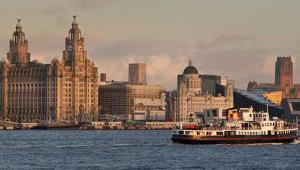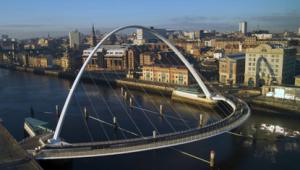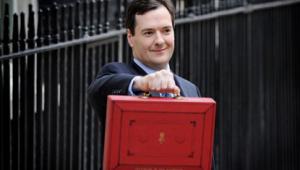By Richard Johnstone | 3 November 2014
The Greater Manchester Combined Authority is to be led by a directly elected mayor under plans to devolve a host of powers to the city region, Chancellor George Osborne has announced today.

Osborne revealed that Greater Manchester would be given greater control over transport, housing, planning and policing policy following the creation of the post. This forms part of the chancellor’s pledge to create a ‘Northern Powerhouse' to boost the economies of cities outside London, and comes after the independent City Growth Commission report called for the creation of mayors as part of accountability for extra powers.
Funding to support business growth and skills is among the areas to be devolved, while additional assistance will be provided by Whitehall to join up local health and social care budgets.
Osborne said that he hoped that Manchester would be the first of many English cities to come to agreement on devolution of what he called ‘a comprehensive package of powers’ that can help stimulate economic growth and plan strategically across the city.
‘This is a massive moment for the north of England and our plan to build the Northern Powerhouse,’ Osborne said.
‘After several months of private discussions with local representatives from all three parties, I have reached agreement with the civic leaders of Greater Manchester to create the first metro-wide elected mayor outside of London.
‘This will give Mancunians a powerful voice and bring practical improvements for local people, with better transport links, an Oyster-style travelcard, and more investment in skills and the city’s economy.’
He said that, following last week’s plans for a new trans-Pennine High Speed 3 rail line, the plans for a ‘Northern Powerhouse’ were becoming a reality, with further announcements expected in next month's Autumn Statement.
‘I want to talk to other cities who are keen to follow Manchester’s lead – every city is different, and no model of local power will be the same.’
Other powers for the new directly elected mayor will include control of a £300m Housing Investment Fund, as well as powers over strategic planning.
The city chief will also be given responsibility for a multi-year transport budget, including powers to introduce franchised bus services similar to London, as well as taking on the role of the current Greater Manchester Police and Crime Commissioner. The administration will also be given the opportunity to be a joint commissioner with Department for Work and Pensions for the next phase of the Work Programme.
Local Government Secretary Eric Pickles said the landmark agreement showed the government was serious about moving powers out of Whitehall.
‘It is an important step in our continuing work to decentralise, to increase local democracy, bring better services and deliver more homes and jobs,’ he said. ‘Greater power for local government must always come with greater local accountability so people can challenge their council to do better and hold them to account about services they provide.’
Responding to the announcement, chair of Greater Manchester Combined Authority Lord Peter Smith said the settlement would give the city region more control over several key policies. Decisions would now be based on local priorities rather than ‘one-size-fits-all’ diktats from Westminster.
‘This isn’t about taking powers from individual Greater Manchester authorities,’ he said. ‘It’s about powers coming down from central government to a more localised level.’
Manchester City Council leader Sir Richard Leese added the city region had been at the vanguard of the national devolution debate.
‘It was clear that an over-centralised national system was not delivering the best results for our people or our economy.
‘Our ultimate ambition is for full devolution of all public spending in Greater Manchester, currently around £22bn a year, so that we either influence or control the whole amount.’
CIPFA chief executive Rob Whiteman said that the powers were welcome but added that fiscal devolution mustn’t stop at Manchester.
‘We now need to see much wider reform of local government if we are truly to grapple with how devolution can work to drive growth and regeneration across England,’ he said.
‘We must do more than just cherry pick those cities that already have strong regional economies and instead work across local authorities of all shapes and sizes to give local communities more power over how public money is spent, aligning public resources to deliver services more effectively and efficiently according to local need.’
The plan was also welcomed by IPPR North director Ed Cox, who said it represented ‘a huge leap forward for devolution in England’.
He added: ‘IPPR North has always argued that it is essential that this comes with strong local accountability and Manchester’s own model for a directly-elected mayor, elected by the public and accountable to the combined authority leaders, will cause other cities to take note.’






















